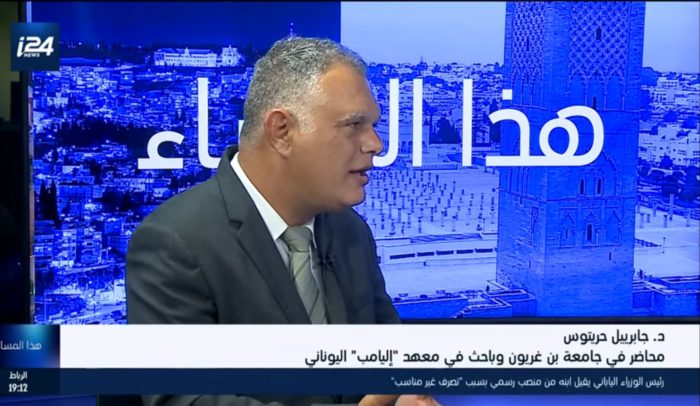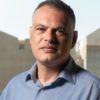Gabriel Haritos was invited to the Arabic-language Israeli news channel i24news to discuss the reception of the re-election of Turkish President Recep Tayyip Erdoğan in Greece and Cyprus, and the state of the regional energy cooperation between Israel and Cyprus. He also assessed the decisions the re-elected Turkish President will be forced to take, given the state of the Turkish economy.
Mr. Haritos noted that the recent elections in Turkey were covered extensively and with great interest in Greece. As the Greek side sees it, especially in the wake of the major earthquake in Turkey, a positive climate has recently come into being which could allow talks on Greek-Turkish issues to resume, especially in light of the encouraging stance taken by the United States. However, Greece is currently in an election period and there is a sense of things being put on hold.
At the same time, Cyprus has been active, with President Nicos Christodoulides paying an official visit to Israel two weeks ago. The focus of his visit was the possibility of building an undersea pipeline linking Israeli gas fields with the liquefaction plant planned for construction on the island, with a view to its serving as a transit point on the way to the European market. The fact that the issue was made public by the Israeli Prime Minister on 14/5, passing the baton on to the Cypriots to address international investors, shows that Cyprus is seeking to table specific issues with its regional energy partners, Greece and Israel, as a reminder of the need to implement the options in view of a possible resumption of Greek-Turkish talks following the formation of the new Greek government after the elections of 25 June.
Commenting on the result of the Turkish election, Gabriel Haritos stressed that there was a feeling both internationally and in Greece—based on recent opinion polls—that Kemal Kılıçdaroğlu could well emerge victorious. However, Mr Haritos also stressed that should Erdoğan be re-elected, this should not necessarily be seen as a negative development, given that both Athens and Nicosia are familiar with his style of rule after twenty years.
Finally, asked to comment on the future course of Turkish foreign policy, Gabriel Haritos noted that though Turkey has been “enjoying benefits from two worlds”, meaning the West and Russia, especially since the outbreak of the war in Ukraine, the time will come when it will have to choose which camp it belongs to.
At the regional level, Mr Haritos expects to see Turkey strengthen its relations with the Turkic former Soviet republics of Central Asia, and to seek to resolve its economic problems by once again addressing the Sunni monarchies of the Gulf. At the same time, the new Erdoğan administration will be called upon to deliver the economic benefits it promised voters. In order to do this, it will have to strengthen itself financially; efforts to do so may, however, run into stumbling blocks presented by Erdoğan’s Islamist rhetoric on specific regional and international issues.
Click to watch the interview, after the 11th minute, in Hebrew, with simultaneous Arabic translation.




